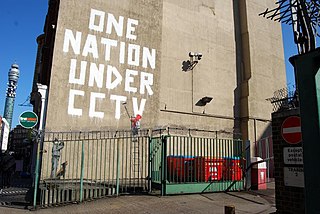
Privacy is the ability of an individual or group to seclude themselves or information about themselves, and thereby express themselves selectively.
Freedom of information laws allow access by the general public to data held by national governments and, where applicable, by state and local governments. The emergence of freedom of information legislation was a response to increasing dissatisfaction with the secrecy surrounding government policy development and decision making. In recent years Access to Information Act has also been used. They establish a "right-to-know" legal process by which requests may be made for government-held information, to be received freely or at minimal cost, barring standard exceptions. Also variously referred to as open records, or sunshine laws, governments are typically bound by a duty to publish and promote openness. In many countries there are constitutional guarantees for the right of access to information, but these are usually unused if specific support legislation does not exist. Additionally, the United Nations Sustainable Development Goal 16 has a target to ensure public access to information and the protection of fundamental freedoms as a means to ensure accountable, inclusive and just institutions.
The thirty-year rule is a rule in the laws of the United Kingdom, the Republic of Ireland, and the Commonwealth of Australia that provide that certain government documents will be released publicly thirty years after they were created.

The Omnibus Crime Control and Safe Streets Act of 1968 was legislation passed by the Congress of the United States and signed into law by President Lyndon B. Johnson that established the Law Enforcement Assistance Administration (LEAA). Title III of the Act set rules for obtaining wiretap orders in the United States. The act was a major accomplishment of Johnson's war on crime.

The Canada Border Services Agency is a federal law enforcement agency that is responsible for border control, immigration enforcement, and customs services in Canada.

The Personal Information Protection and Electronic Documents Act is a Canadian law relating to data privacy. It governs how private sector organizations collect, use and disclose personal information in the course of commercial business. In addition, the Act contains various provisions to facilitate the use of electronic documents. PIPEDA became law on 13 April 2000 to promote consumer trust in electronic commerce. The act was also intended to reassure the European Union that the Canadian privacy law was adequate to protect the personal information of European citizens. In accordance with section 29 of PIPEDA, Part I of the Act must be reviewed by Parliament every five years. The first Parliamentary review occurred in 2007.

Privacy laws of the United States deal with several different legal concepts. One is the invasion of privacy, a tort based in common law allowing an aggrieved party to bring a lawsuit against an individual who unlawfully intrudes into their private affairs, discloses their private information, publicizes them in a false light, or appropriates their name for personal gain.
Section 7 of the Canadian Charter of Rights and Freedoms is a constitutional provision that protects an individual's autonomy and personal legal rights from actions of the government in Canada. There are three types of protection within the section: the right to life, liberty and security of the person. Denials of these rights are constitutional only if the denials do not breach what is referred to as fundamental justice.
Information privacy, data privacy or data protection laws provide a legal framework on how to obtain, use and store data of natural persons. The various laws around the world describe the rights of natural persons to control who is using its data. This includes usually the right to get details on which data is stored, for what purpose and to request the deletion in case the purpose is not given anymore.

Pappajohn v R, [1980] 2 S.C.R. 120 is a famous Supreme Court of Canada decision on the criminal defence of mistake of fact.

The Access to Information Act or Information Act is a Canadian Act providing the right of access to information under the control of a federal government institution. As of 2020, the Act allowed "people who pay $5 to request an array of federal files". Paragraph 2. (1) of the Act ("Purpose") declares that government information should be available to the public, but with necessary exceptions to the right of access that should be limited and specific, and that decisions on the disclosure of government information should be reviewed independently of government. Later paragraphs assign responsibility for this review to an Information Commissioner, who reports directly to parliament rather than the government in power. However, the Act provides the commissioner the power only to recommend rather than compel the release of requested information that the commissioner judges to be not subject to any exception specified in the Act.
Privacy law is a set of regulations that govern the collection, storage, and utilization of personal information from healthcare, governments, companies, public or private entities, or individuals.

The Information and Privacy Commissioner of Ontario was established as an officer of the Legislature by Ontario's Freedom of Information and Protection of Privacy Act, which came into effect on January 1, 1988. The current commissioner is Patricia Kosseim.
David G. Coles, is a Canadian lawyer. He received his B.A. from Dalhousie University in 1981. He then received his LL.B. in 1984, also from Dalhousie. He was admitted to the Nova Scotia Bar in 1985.

Canadian privacy law is derived from the common law, statutes of the Parliament of Canada and the various provincial legislatures, and the Canadian Charter of Rights and Freedoms. Perhaps ironically, Canada's legal conceptualization of privacy, along with most modern legal Western conceptions of privacy, can be traced back to Warren and Brandeis’s "The Right to Privacy" published in the Harvard Law Review in 1890, Holvast states "Almost all authors on privacy start the discussion with the famous article 'The Right to Privacy' of Samuel Warren and Louis Brandeis".
Freedom of information in Canada describes the capacity for the Canadian Government to provide timely and accurate access to internal data concerning government services. Each province and territory in Canada has its own access to freedom of information legislation.

Joseph James Arvay, was a Canadian lawyer who argued numerous landmark cases involving civil liberties and constitutional rights.

R v Spencer, 2014 SCC 43 is a landmark decision of the Supreme Court of Canada on informational privacy. The Court unanimously held that internet users were entitled to a reasonable expectation of privacy in subscriber information held by Internet service providers. And as such, police attempts to access such data could be subject to section 8 of the Charter of Rights and Freedoms.
Privacy and the United States government consists of enacted legislation, funding of regulatory agencies, enforcement of court precedents, creation of congressional committees, evaluation of judicial decisions, and implementation of executive orders in response to major court cases and technological change. Because the United States government is composed of three distinct branches governed by both the separation of powers and checks and balances, the change in privacy practice can be separated relative to the actions performed by the three branches.

Ontario v Fraser [2011] 2 SCR 3 is a Canadian labour law case concerning the protection of collective bargaining under section 2(d) of the Canadian Charter of Rights and Freedoms. At issue was an Ontario law that created a separate labour relations regime for agricultural workers. The Court considered the standard for establishing a breach of section 2(d) in cases where government action is alleged to interfere with collective bargaining rights. A majority of the Court upheld the law, finding no breach of sections 2(d) or 15 of the Charter.









